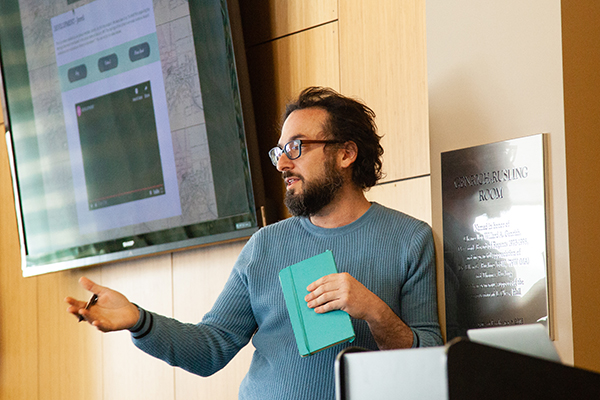Reporting observations of a digital conversion: what and how should we be reporting to other practitioners?
April 20, 2016
|
10:30 am
12:00 pm
LeChase 285
Across their teaching careers, practitioners sometimes or even frequently find themselves immersed in and pushed by transformational approaches to instructional practice and student learning that impact not only their own professional development and their classrooms but also the classrooms, careers, and professional development of their peers and colleagues.
Within the realm of digital teaching and learning along with online teaching and learning, such potential for transformative impact in learning and practice may be taking shape before our very eyes.
As these stories unfold and countless educators become willing (and sometimes unwilling) actors and participants in these new-frontier practices and methods, several questions come to mind:
1. What are ways that this information can be captured and reported in productive ways that extend the value being experienced by students, their teachers, and the administrators who support these efforts?
2. How can traditional practitioners – and even practitioners who have comfortably begun practicing within the realm of “digital conversion”,
systematically collect and report, as informed by research methodologies, the work that they’re doing in this new paradigm?
3. What venues seek and support these sorts of reporting?
4. What sorts of non-traditional “publishing” avenues could be leveraged to help impact the practices of countless educators who will embark within this contemporary arena of learning in the digital age?
In our LiDA session for April 20, 2016, Dave Miller will present some of the work he has done in K-12 schools in digital conversion and at Warner in online teaching and learning, toward an objective of soliciting from our LiDA Study Group their insights on the questions posed.
Facilitated by Dave Miller

